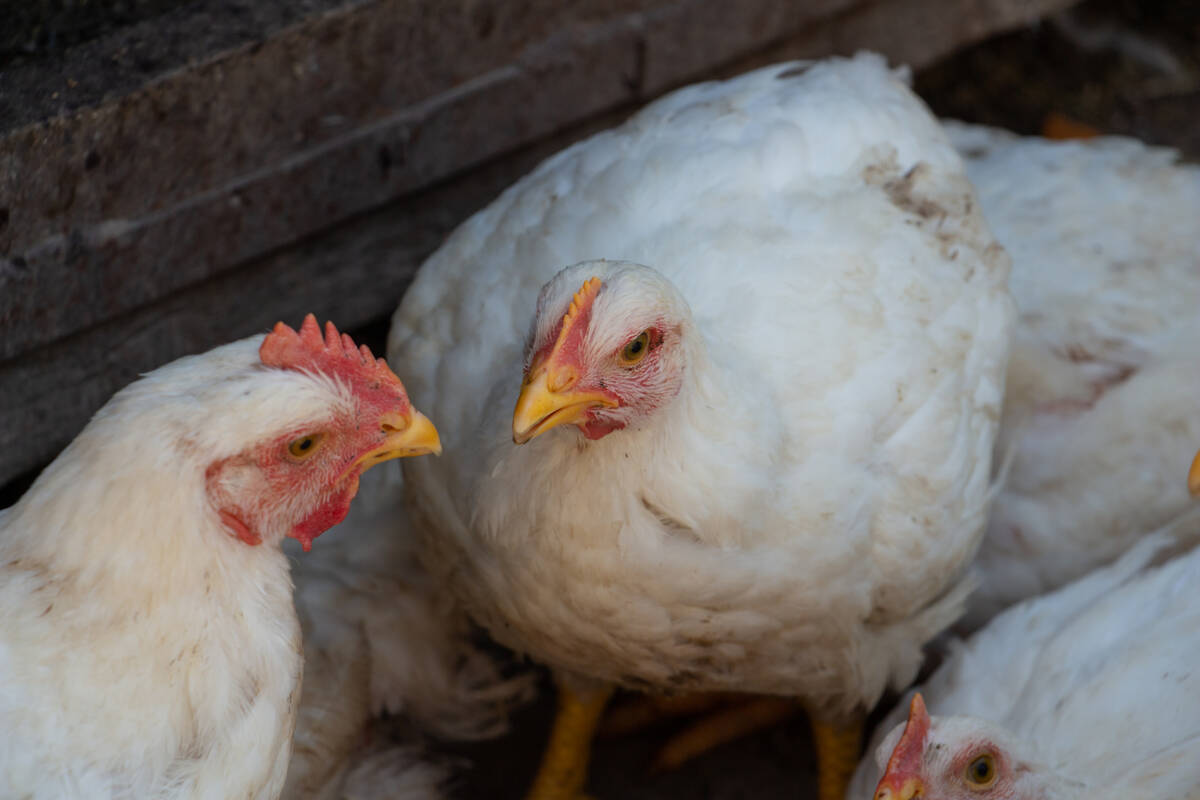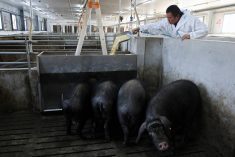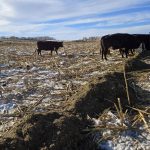Chicago | Reuters — The U.S. pork industry canceled its annual convention on Wednesday over concerns that international attendees could bring in an incurable hog disease at a time when U.S. farmers are already suffering from trade wars.
The decision to scrap the World Pork Expo, held by the National Pork Producers Council in Des Moines each June, signals growing fears about the spread of African swine fever in Asia.
The event usually attracts about 20,000 people over three days, including visitors from China and other countries that have experienced outbreaks of the disease, according to the group.
Read Also

Chicken, eggs benefit from demand for economical protein
Strong demand for protein and status as an economical alternative to beef bodes well for chicken and egg demand in 2026 according to recent analysis from Farm Credit Canada.
China, home to the world’s largest hog herd, has reported more than 110 cases of African swine fever since it was first detected in the country in August 2018. There is no cure and no vaccine for the disease, which does not affect humans but is highly contagious and fatal to pigs.
The Paris-based World Organization for Animal Health said on Wednesday that South Africa detected an outbreak of African swine fever, which has also been found in Vietnam and Europe.
U.S. farmers, meat companies and government officials want to keep the disease out of the United States because cases would likely shut off export markets.
“The health of the U.S. swine herd is paramount,” said David Herring, president of the National Pork Producers Council and a farmer from Lillington, N.C. “The livelihoods of our producers depend on it.”
The U.S. government has increased screenings for illegal pork products at airports and sea ports and cracked down on smuggling in an effort to keep out African swine fever.
U.S. pork producers are asking Congress to appropriate funding for another 600 U.S. Customs and Border Protection agriculture inspectors, according to the National Pork Producers Council.
U.S. hog farmers have been under pressure over the past year from President Donald Trump’s trade disputes with China and Mexico, two top U.S. pork export markets.
U.S. pork faces retaliatory duties of 62 per cent in China and up to 20 per cent in Mexico, reducing demand and contributing to a mountain of unsold meat in cold storage.
The tariffs influenced the National Pork Producers Council’s decision to cancel the annual convention, sometimes referred to as the “big pig gig,” according to the group.
“U.S. pork producers are already operating in very challenging financial conditions,” Herring said.
That a swine fever outbreak “would immediately close our export markets at a time when we are already facing serious trade headwinds” was among the factors prompting a “conservative decision” regarding the event, he said in a release.
Wednesday’s decision isn’t unprecedented for the World Pork Expo, which was also cancelled in 2001 in view of that year’s outbreaks of foot-and-mouth disease in the U.K. and mainland Europe.
Swine health loomed large over another major U.S. livestock show last month, when producers were cautioned after several hogs were diagnosed with porcine epidemic diarrhea (PED) during the Oklahoma Youth Expo in Oklahoma City.
Oklahoma 4-H at the time urged participating producers to isolate show hogs from their home herds for at least 30 days after their return from that event, which is billed as the world’s largest junior livestock show.
— Tom Polansek reports on agriculture and ag commodities for Reuters from Chicago. Includes files from Glacier FarmMedia Network staff.















